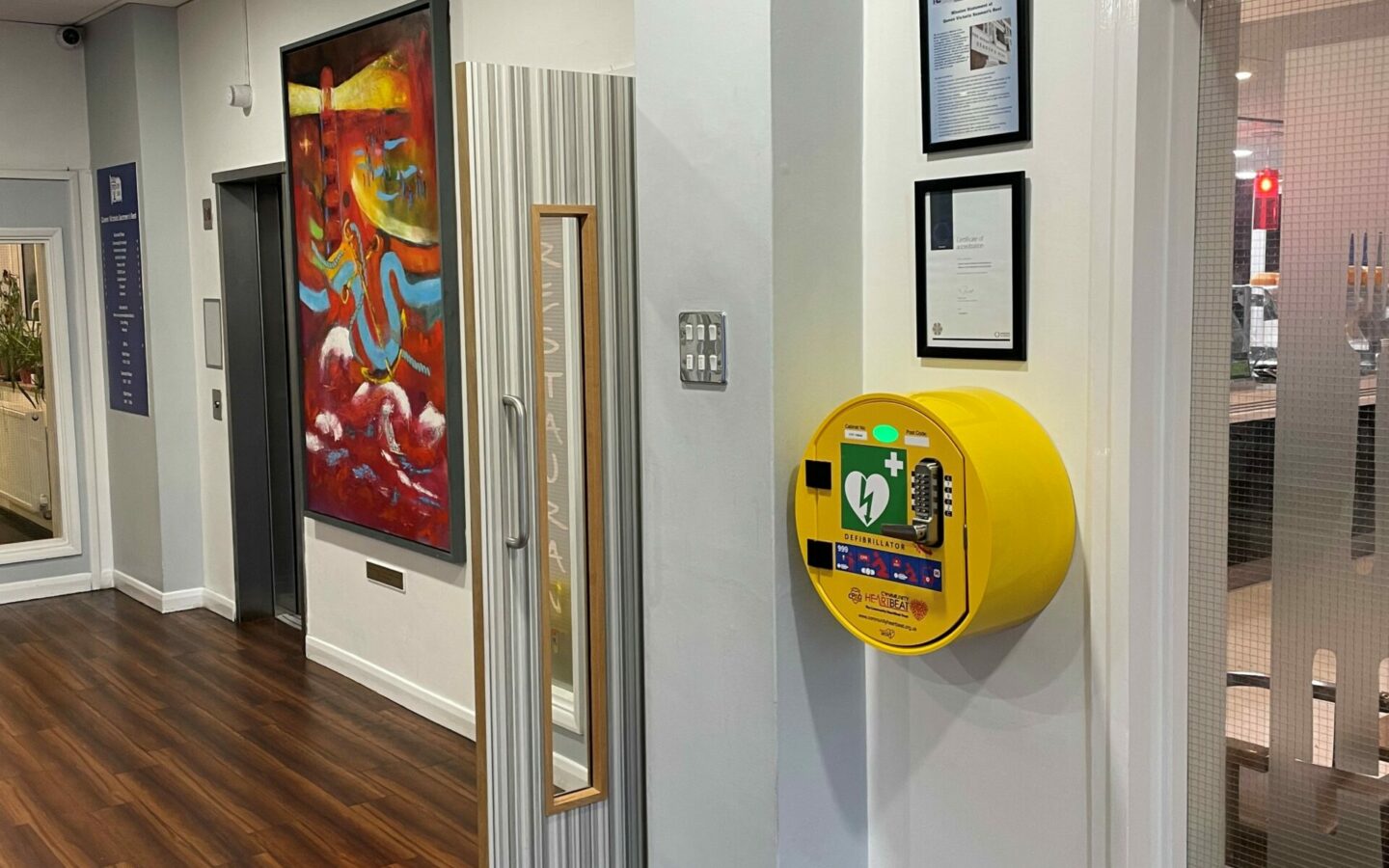The Seafarers Hospital Society (SHS) will provide and install 20 defibrillators in ports and seafarer centres across the UK as part of its ongoing health outreach programme.
The project, which received funding from Department for Transport via leading maritime charity the Merchant Navy Welfare Board, is aimed at preventing heart-related fatalities after identifying a growing prevalence of heart disease in coastal communities.
This initiative builds on the success of a pilot project conducted by SHS and the NHS in 2022 – and aims to install 20 Lifeline Automated External Defibrillators (AED) in ports and seafarer centres across the UK by the end of 2023.
The choice to install AEDs comes because of information gathered by SHS through its SeaFit Programme and regular work with crew. The rising median age of seafarers working in the UK has shown a concurrent rise in heart attacks and other similar health-related incidents caused by high blood pressure. The rise in heart disease may also be driven by lifestyle, deprivation, stress, and other factors — per the UK Chief Medical Officer’s Annual Report 2021: Health in Coastal Communities.
Sandra Welch, CEO of the Seafarers Hospital Society, said:
“We know that approximately 460 people die every day from heart and circulatory problems in the UK, and seafarers are increasingly among these numbers. Many of these deaths remain preventable, and our goal is to ensure that we minimise loss of life by providing life-saving equipment across ports and seafarer centres around the UK. We are grateful to the Department for Transport and the Merchant Navy Welfare Board for supporting our efforts to look after the heart health of seafarers and, most importantly, helping to save lives!”
Treatment with a life-saving shock from an AED is a key factor in increasing a person’s chance of survival in the event of a heart attack. They are compact, portable, require little maintenance and can be stored for long periods of time. SHS has specifically chosen AEDs which can be used safely and effectively without requiring previous training.
“The Lifeline AED devices we have chosen provide audio-visual instructions, making them universally comprehensible and allowing personnel to operate them safely even in times of panic or emergency. Additionally, we have ensured that a training — either face-to-face, virtual or via video — accompanies each AED so that personnel at these ports and centres are well-equipped to ensure seafarer wellbeing in the case of a cardiac incident,” added Welch.
SHS has already installed an AED at the Queen Victoria Seamen’s Rest (QVSR) in London.
Alexander Campbell, CEO of QVSR, said:
“With 170 residents and 50 staff on the premises each day, it is reassuring to know that should there be a medical emergency we have a defibrillator on site. This important piece of equipment could save someone’s life and we are grateful to The Seafarers Hospital Society for championing this cause. QVSR also wants to say thank you on behalf of the thousands of seafarers who visit QVSR Tilbury Seafarers Centre each year, as the provision of a defibrillator at the Seafarers Centre allows us to keep seafarers and other visitors safe.”
Stuart Rivers, Chief Executive of the MNWB which is the umbrella charity for the UK Merchant Navy and fishing fleet, said:
“Every minute that passes without CPR or defibrillation reduces the chances of survival by up to 10% – and this project will help save lives. Being rolled out by our long-standing constituent member Seafarers Hospital Society, these much-needed defibrillators will ensure ports and seafarer centres across the UK will feel more equipped to deal with a crisis.”
“This is just the start, and we are delighted to be supporting this programme,” he added.
Maritime Minister Baroness Vere said:
“The UK Government is committed to improving working conditions for seafarers, both in the UK and internationally, by boosting their welfare and protecting them from exploitation. I’m therefore very pleased to see government funding go towards providing 20 defibrillators in ports and seafarer centres right across the country. These measures will help save lives and ensure our seafarers know their welfare is of paramount importance.”
Alongside installations of AEDs, SHS will also conduct a webinar on June 7th at 12pm with the goal of educating seafarers about cardiovascular diseases and the benefits of healthy living. It will feature Community Heartbeat Trust’s Martin Fagan, General Practitioner Dr Charlotte Mendes Da Costa and SeaFit’s Senior Health Trainer for Fishermen Richard Beecroft. Registration details can be found here.
The webinar will join existing free SHS resources for seafarers, which can be found here.

